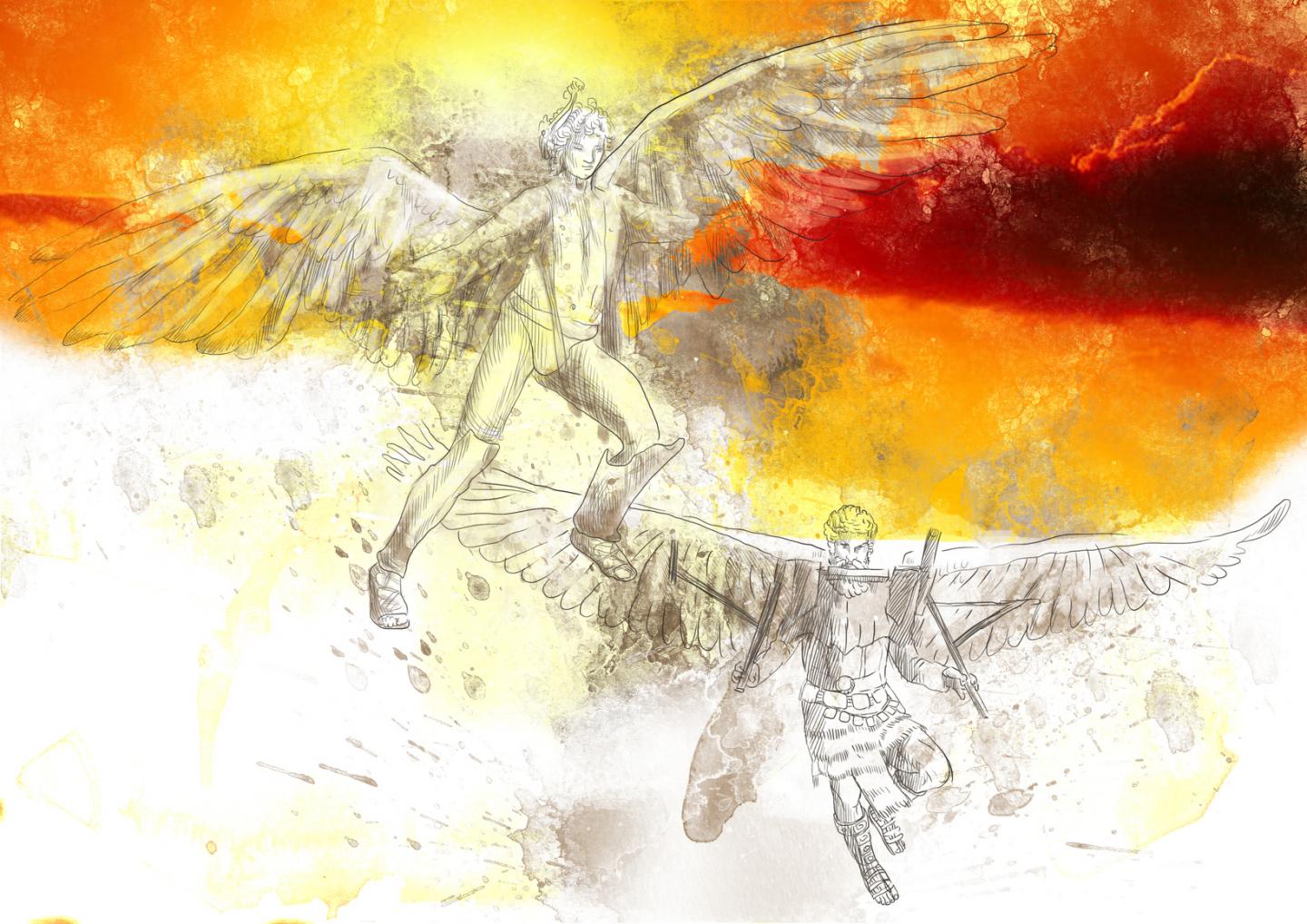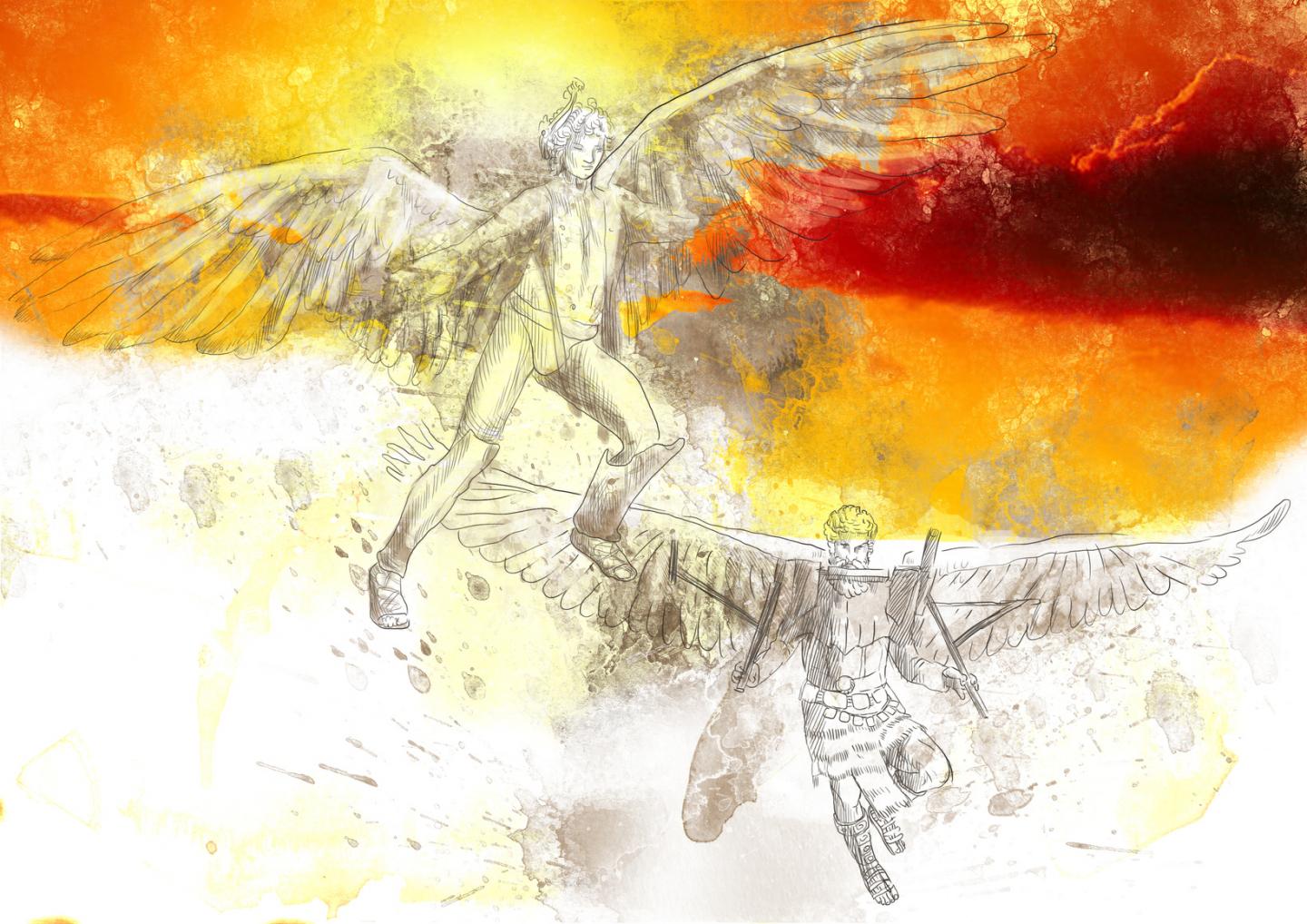
Credit: Copyright: kuco, Fotolia.com
This news release is available in German.
The dilemma of our immune system is comparable to the story of Icarus and Daedalus from Greek mythology. To escape their captivity, Daedalus built wings from feathers and wax for himself and his son. Daedalus warned his son that he must neither fly too high but also not too low, otherwise the sun's heat or the humidity of the sea would destroy his wings and he would crash. After they had successfully escaped, Icarus became boisterous and flew higher and higher until the sun began to melt the wax of his wings and he fell into the sea. Similarly, an over- or under-reaction of our immune system can be life-threatening.
The molecule IL-1β plays a key role in the balanced defense against bacteria
Which are the molecules that ensure a balanced immune response? The research of Pavel Kovarik and his team at the Max F. Perutz Laboratories of the University of Vienna addresses this question. "For our experiments we simulated infections with group A Streptococci, which are best known as the common cause of tonsillitis. However, in some cases, they can also cause serious invasive infections. The related disease – toxic shock syndrome and necrotizing fasciitis – can be fatal," explains PhD student and first author of the study Virginia Castiglia. As part of a project funded by the Austrian Science Fund FWF project, the young scientist examined what happens at the molecular level in invasive streptococcal infection. Her results show that the molecule IL-1β play a key role in the defense against streptococci: if there is too little, the bacteria gain the upper hand followed by blood poisoning, if there is too much, the result is excessive inflammation. Both can be lethal.
Tipping the scales: type I interferons
But how is the amount of IL-1β regulated? "We could show that type I interferons (IFN-I) are key," says study lead Pavel Kovarik: "We have known for a long time that IFN-I helps in the fight against viruses, but their role in the defense against bacteria was far less clear. For the first time, we could now show in our model system that they also play an important role in bacterial infections too by reducing the amount of IL-1β and so preventing excessive inflammation."
New therapies to treat invasive streptococcal disease
These results should now prompt medical research as it is important to understand, besides the model system, how the amount of IL-1 β is balanced in patients and how it is related to the severity of the infection. Virginia Castiglia explains: "In our model we have shown that if IFN-I effects are reduced, treatment with inhibitors of IL-1β synthesis have positive effects and balance is restored. Once we understand the relationship between IFN-I and IL-1β in humans, we can test these and similar therapies." Until now, serious invasive streptococcal infection can only be treated symptomatically. Antibiotics only help in the early stages and anti-inflammatory agents show little effect. Often the only way is the generous removal of the inflamed tissue. So there is still a lot to do for Pavel Kovarik and his team. Virginia Castiglia also continues to address questions related to infection biology. Since mid-February, she is a Postdoc at the Institut Pasteur in Paris, funded by a prestigious Marie Curie grant from the European Union.
###
Publication in Cell Host & Microbe: Virginia Castiglia, Alessandra Piersigilli, Florian Ebner, Marton Janos, Oliver Goldmann, Ursula Damböck, Andrea Kröger, Sigfried Weiss, Sylvia Knapp, Amanda M. Jamieson, Carsten Kirschning, Ulrich Kalinke, Birgit Strobl, Mathias Müller, Dagmar Stoiber, Stefan Lienenklaus & Pavel Kovarik: Type I Interferon Signaling Prevents IL-1β Driven Lethal Systemic Hyperinflammation during Invasive Bacterial Infection of Soft Tissue.
In: Cell Host & Microbe (March 2016)
DOI: dx.doi.org/10.1016/j.chom.2016.02.003
Media Contact
Pavel Kovarik
[email protected]
43-142-775-4608
@univienna
http://www.univie.ac.at/en/





